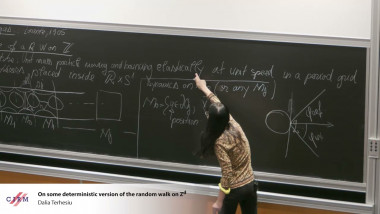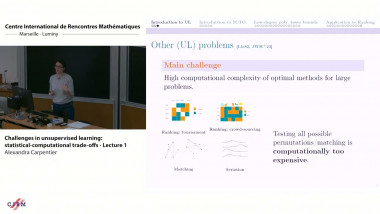
On some deterministic version of the random walk on $\mathbb{Z}^d$
De Dalia Terhesiu

Challenges in unsupervised learning: statistical-computational trade-offs - Lecture 1
De Alexandra Carpentier
Apparaît dans la collection : Probabilistic values on cooperative game theory and their applications in machine learning
Game theory is a mathematical theory which deals with situations in which two or more individuals (players) interact and thereby jointly determine the outcome. Game theory has two principal branches; cooperative games and noncooperative games. In this course, we are only interested by cooperative games. We present concepts of : cooperative games (with transferable utility), core of a cooperative game, and probabilistic values. Note that, on cooperative games, values are used to evaluate each player's contribution to the collective outcome. The most famous of them is the Shapley value. The measure of individual's contributions is also a major preoccupation in machine learning. In fact, with the proliferation of black-box models, people are concerned about the influence of each feature on the prediction made by a model of machine learning. In the application part of this course, we use the Shapley value to evaluate each feature's influence. For that, from the model of machine learning, we construct a cooperative game in which features correspond to players.
